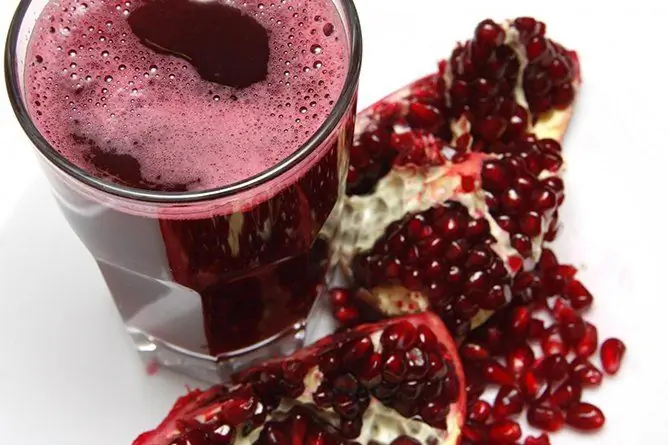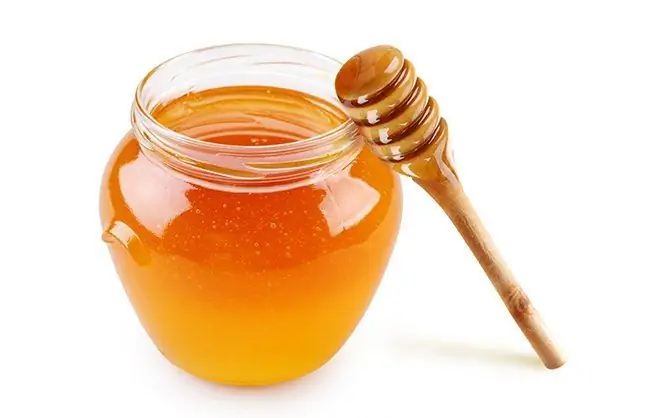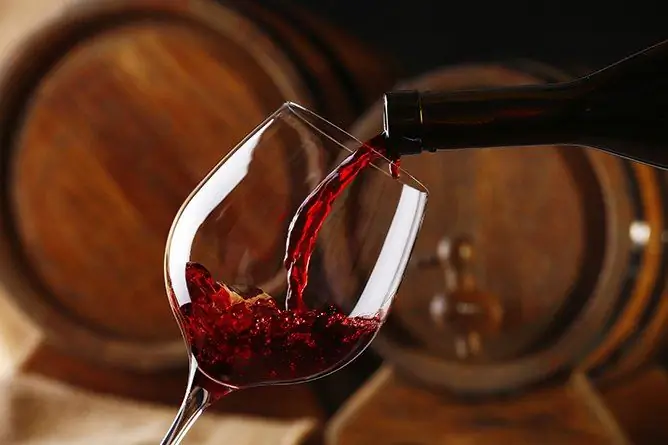- Author Rachel Wainwright wainwright@abchealthonline.com.
- Public 2024-01-15 19:51.
- Last modified 2025-11-02 20:14.
Does cognac increase pressure or lower it?
The content of the article:
- Cognac lowers blood pressure
- Cognac increases blood pressure
- Influence of cognac on pressure depending on the amount
- Video
Does cognac lower or increase pressure? Every second adult inhabitant of the planet experiences blood pressure problems of one origin or another, which makes the problem extremely urgent, and the demand for drugs for hypertension is constantly high. But also people are always looking for a folk, affordable method that would normalize blood pressure without the need to take medications. One way is to take cognac, but does it really help? What physiological effect does it have? Opinions differ. To determine the truth, we will adhere to scientific arguments and the opinion of doctors.

Cognac causes a short-term decrease in pressure, and then an increase
Cognac lowers blood pressure
In favor of the fact that this strong drink allows you to reduce high blood pressure (BP) in a fairly short time, evidenced by the data on the effect of alcohol (ethanol, ethyl alcohol) on blood vessels.
Ethanol has a vasodilating effect, reducing the peripheral vascular tone. This leads to a moderate decrease in blood pressure in humans, but this effect persists only with small doses of alcohol, 50 ml for men and 30 ml for women on average.
Another useful property of alcohol in a small dose is its ability to cleanse blood vessels (especially the vessels of the brain, since ethanol penetrates the blood-brain barrier) from fatty plaques accumulated on the walls, which are the cause of atherosclerosis, alcohol dissolves fats and thereby reduces blood density. However, it should be borne in mind that alcohol contributes to dehydration, and this, on the contrary, thickens the blood, therefore a large amount of alcohol negates the positive effect.
Cognac is better than vodka in terms of its effect on the cardiovascular system, since it contains extractive and tannins that have a beneficial effect on the vascular wall, strengthening it.
Thus, cognac with high blood pressure can be allowed to be taken in very moderate doses.
Cognac increases blood pressure
Oddly enough, but a strong drink can affect blood pressure in the opposite way, increasing it. The fact is that the vasodilator effect does not last long, and the intake of an additional amount of alcohol will lead to the opposite result. The body tries to compensate for the expansion of peripheral vessels, therefore, after a short period of low blood pressure, a period of increased pressure begins, which is especially harmful for patients with hypertension. Therefore, you cannot drink more than the recommended dose of alcohol for therapeutic purposes, the body reacts to this with a noticeable increase in pressure.
While taking cognac, the frequency and strength of the heart rate increases somewhat, the pulse increases - any liquid increases the volume of circulating blood. In addition, ethanol has osmotic activity, it attracts water, taking it out of the intracellular space into the extracellular space - into the vessels. It is this effect that provides a strong thirst some time after taking alcoholic beverages. The increase in blood volume again leads to an increase in blood pressure.
Also, alcohol has an inhibitory effect on the state of the nervous system. Because of this, the innervation of the muscular elements of the vessels worsens, they compensate for the cardiac impulse worse, and the pressure rises.
Influence of cognac on pressure depending on the amount
Based on the above, we can conclude that cognac more often and more actively acts in the direction of increasing blood pressure than in the direction of decreasing it. So is it possible to drink cognac with high blood pressure? This is undesirable, but may be acceptable if the pressure is slightly increased, and the daily portion of cognac does not exceed 50 ml.
With low blood pressure, it is possible to use cognac, but it should be remembered that immediately after taking alcoholic beverages for a short time (up to half an hour), the vessels expand and the pressure decreases a little more. Cognac will have a hypertensive effect only after this effect has passed.

With low pressure, you can drink coffee with cognac
The influence of cognac, like any biologically active substance, depends on the dose taken, which for alcohol has the following effects, expressed in the table:
| Up to 10 ml | The effect is mainly on the vessels of the brain, which may slightly expand, but this does not entail a tangible change in blood pressure. In this form, cognac is included in pastry recipes, drinks, and some hot dishes. |
| 10-50 ml | Reduces blood pressure for a short time. Blood circulation improves, a positive effect on the strength and elasticity of blood vessels. |
| 60-80 ml | It causes inhibition in the central nervous system, produces a slight sedative effect, which in half an hour is replaced by an increase in pressure. |
| 100 ml and more | At first, it significantly reduces blood pressure, and then greatly increases it, causing a sharp jump. This dose is harmful to the body. |
In order not to exceed the permissible dose and control the level of blood pressure, it is often suggested to use cognac in combination with other products. An example is tea or coffee with cognac - caffeine acts immediately and compensates for the vasodilating effect of cognac at the beginning, and alcohol comes into effect after. Reviews of this combination are especially positive in people suffering from hypotension, i.e., low blood pressure. For hypertensive patients, such a combination is undesirable.
Video
We offer for viewing a video on the topic of the article.

Nikita Gaidukov About the author
Education: 4th year student of the Faculty of Medicine No. 1, specializing in General Medicine, Vinnitsa National Medical University. N. I. Pirogov.
Work experience: Nurse of the cardiology department of the Tyachiv Regional Hospital No. 1, geneticist / molecular biologist in the Polymerase Chain Reaction Laboratory at VNMU named after N. I. Pirogov.
Found a mistake in the text? Select it and press Ctrl + Enter.






